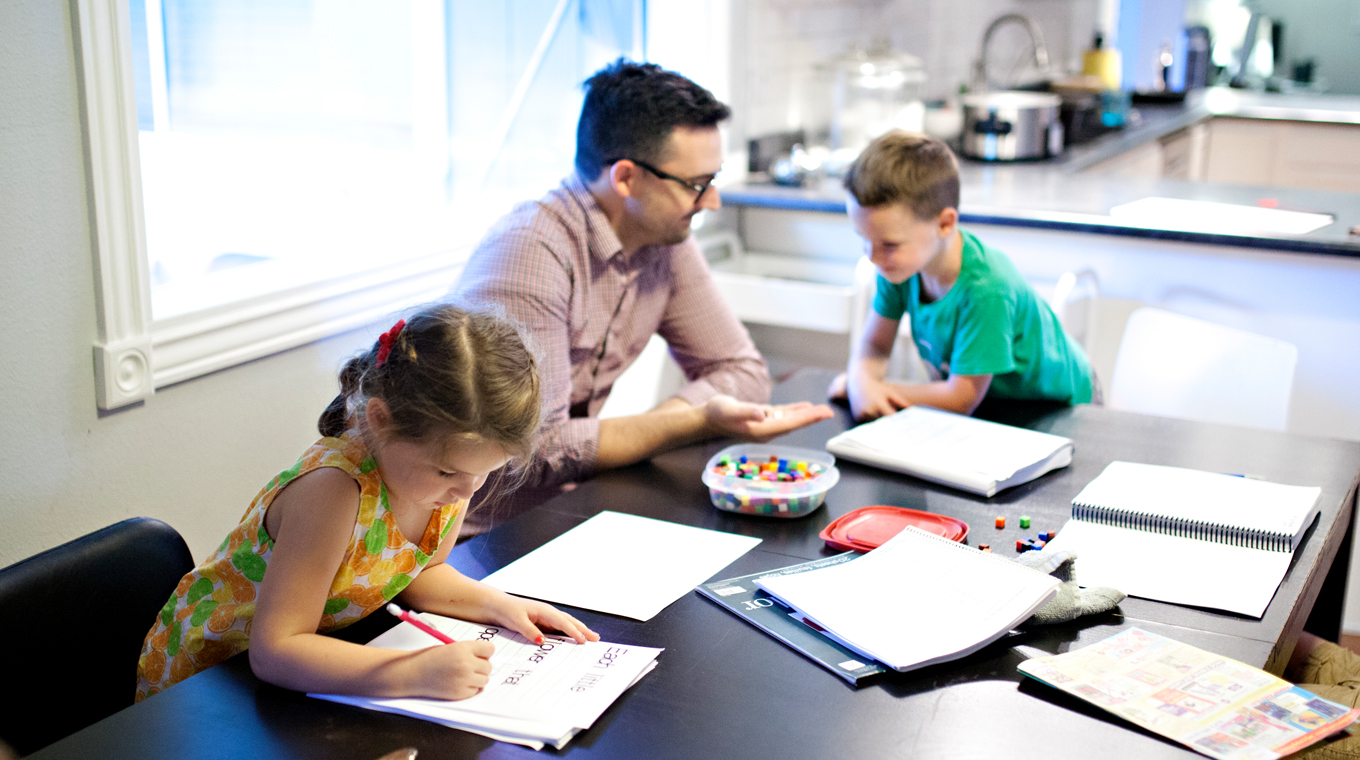
In this article
Standardized tests can take a tremendous toll on kids' nerves. The tests themselves are generally long, difficult, and high-stakes, and the pressure to do well often feels overwhelming. As a parent, you can't take the test for your child, but you can make sure they're prepared — emotionally, physically, and intellectually — to take it themselves.
Provide practice opportunities

Make sure your child understands not only what the test will cover but how it will be formatted. This applies for all grade levels, from elementary school to college admissions. For older kids taking big tests like the SAT and ACT, consider signing up them up for a test prep course, or hiring a test prep specialist for one-on-one help. There are also free or low-cost apps and websites where kids can see sample questions or take practice tests.
"With Khan Academy and ACT Online Prep, you start doing timed tests early on," Joyee Lin, the founder of Thinque Prep, told Mom.com. "One of the biggest anxiety-inducing factors behind test prep, I find, is lack of familiarity. If students can become familiar with the content involved, that eases some of the pressure."
Lin also suggests replicating the test-taking environment as closely as possible during practice tests, so students aren't thrown off by their surroundings on the day of. "In my practice, I have students come in to take full-length practice exams on the weekend," he says. "They wake up early and take a full ACT or SAT according to the actual times set by CollegeBoard and ACT. This helps students get into the mindset of getting ready for 'test day.'"
For younger kids, Scholastic encourages reading various materials such as magazines, newspapers, or even comic books since good reading skills are essential in a timed test. Ask them to discuss what they’ve read — this will assess if they’re understanding the material, since testing also measures critical-thinking abilities.
Make sure they get enough sleep
Research shows that students who get a good night's sleep have higher grades and perform better on tests. Your child needs between eight and ten hours of sleep a night, according to the National Sleep Foundation, so try to get them on a consistent schedule in the weeks leading up to the test. Sleep debt is cumulative, so it's not enough to just send them to bed early the night before, especially if they've been up late cramming for several days in a row.
Make sure they eat a good breakfast

There's a reason — a whole host of reasons, really — why people always talk about breakfast being the most important meal of the day. For one thing, eating a healthy breakfast has been linked to improved academic performance and higher standardized test scores. Ideally, your kids are already in the habit of having breakfast every day, but if they're not, make sure they at least eat something hearty and nutritious the morning of their test.
Help with logistics
Your child will be overwhelmed thinking about all the hypotheticals of the test, so you can help by staying on top of any practical considerations. For big tests like the SAT and ACT, make sure they're registered by the deadline, and confirm that you know where the testing center is and how to get there. CollegeVine suggests even doing a test drive a week or two ahead of time, so there's no chance (or at least less of a chance) that they'll get lost along the way.
You should also check that your child has everything they need in terms of supplies. Make a list a few days before in case you need to go shopping for anything, and then help them organize everything in one place the night before. For the SAT, the College Board has a list of things you should bring — your ID, No. 2 pencils, an approved calculator, etc. — as well as things you should leave at home.
Remind them to relax

"My daughter was very driven, so it was easy for me to be 'hands off,'" Donna Schwartz Mills told Mom.com. "She did competitive gymnastics in elementary and middle school, and either it taught her to be a perfectionist or, more likely, she was born with that tendency. If anything, I had to remind her to relax."
The point is: Kids put plenty of pressure on themselves to do well, so try not to add to it. You want them to succeed, of course, but it'll be harder for them to think straight if they're stressed and anxious. Consider teaching them some relaxation techniques, such as deep breathing or body scanning, in case they find themselves getting overwhelmed during the test.
Build their confidence
Give your child a pep talk the night before or the morning of their test. Remind them that they're ready and that they have the knowledge and skills to do well. Most importantly, let them know that you're proud of them and you love them, no matter what. Tests are not a measure of their self-worth.




